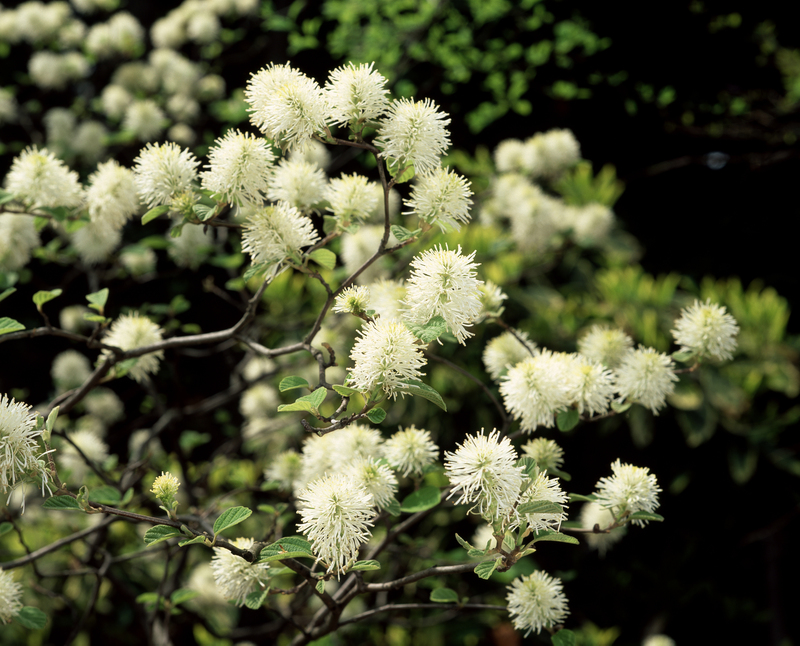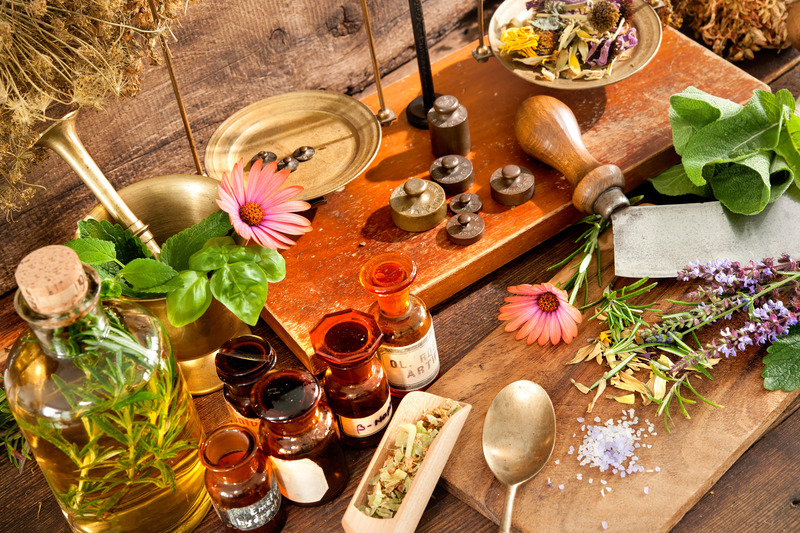Start Your Green Journey: 9 Essential Gardening Tips for Beginners
Posted on 14/08/2025
Start Your Green Journey: 9 Essential Gardening Tips for Beginners
Gardening is a rewarding activity that brings you closer to nature, promotes well-being, and can even put fresh food on the table. If you are looking to start your green journey, you're in the right place. In this comprehensive guide, we'll provide 9 essential gardening tips for beginners to help you cultivate a thriving outdoor or indoor garden, no matter how much experience you have. Let these beginner gardening tips empower you to grow your confidence and nurture your green thumb.
Why Gardening is the Perfect Hobby for Beginners
Gardening for beginners offers a variety of benefits. It's an affordable hobby, reduces stress, and helps restore a sense of achievement with every seedling that grows. Plus, learning foundational gardening techniques means you can enjoy homegrown food and beautiful flowers almost year-round.

9 Essential Gardening Tips for Beginners
1. Choose the Perfect Spot for Your Garden
The first step in any gardening project is identifying where to start your garden. Pay close attention to how much sunlight your potential garden spaces receive during the day.
- Full Sun: Most fruits, vegetables, and many blooming plants need at least 6-8 hours of sunlight daily.
- Partial Shade: Herbs, salad greens, and some flowers thrive with as little as 3-4 hours of sun.
Tip: Observe your outdoor space for a few days to find the sunniest and shadiest spots before planting.
2. Test and Prepare Your Soil
Healthy plants require healthy soil. Before planting, test your soil's composition and pH using a basic home soil test kit.
- Sandy Soil: Drains quickly but may not hold nutrients well.
- Clay Soil: Retains water, can be slow-draining, and heavy.
- Loamy Soil: The ideal mix for most plants -- drains well and holds nutrients.
Once you know your soil type, enrich it with organic matter like compost, dried leaves, or manure. Proper soil preparation is a crucial step in beginner gardening.
3. Pick Easy-to-Grow Plants First
When starting out, choose resilient and forgiving plants. As gardening beginners, you'll find success more quickly with varieties known for their hardiness.
- Vegetables: Tomatoes, cucumbers, zucchini, radishes, and lettuce.
- Herbs: Basil, mint, parsley, chives, and oregano.
- Flowers: Marigolds, sunflowers, zinnias, and nasturtiums.
Read the care instructions on seed packets or plant labels to learn about sunlight, water requirements, and how much space they'll need.
4. Learn About Watering Wisely
Overwatering and underwatering are common mistakes for beginner gardeners. Plants need consistent moisture, but not soggy roots.
- Check soil moisture: Insert your finger about an inch under the soil. If it feels dry, it's time to water.
- Water early: Water plants in the morning to reduce evaporation and avoid fungal diseases.
- Water at the roots: Focus on the base, not the leaves, for deep root hydration.
5. Start Composting
Composting is a sustainable practice that benefits any new garden. By turning kitchen scraps and yard waste into nutrient-rich humus, you'll reduce landfill waste and naturally improve your soil.
- Add: Fruit and vegetable peels, coffee grounds, eggshells, grass clippings, and leaves.
- Avoid: Meat, dairy, and oily foods, which attract pests.
Pursuing a sustainable gardening journey from the start helps both your garden and the environment.
6. Understand Plant Spacing
Crowding plants prevents them from getting enough nutrients, light, and airflow. Follow the recommended spacing guidelines found on seed packets or plant labels to avoid unhealthy competition and disease outbreaks.
- Vegetables: Give each plant enough room to mature without overlapping leaves.
- Flowers: Allow for proper air circulation to prevent mold and mildew.
7. Embrace Mulching
Mulch is a gardener's best friend, especially for beginners. When you apply a layer of organic mulch (like straw, bark, or wood chips) around your plants:
- Retains moisture -- reducing your need to water.
- Suppresses weeds -- keeping your garden looking tidy.
- Improves soil quality -- as mulch breaks down, it adds nutrients.
Tip: Replenish mulch each season for continued benefits.
8. Keep an Eye on Pests and Diseases
Every gardener encounters pests and diseases at some point. The key for gardening newbies is early detection.
- Inspect leaves for holes, spots, or discoloration regularly.
- Encourage beneficial insects (like ladybugs and lacewings) that eat harmful bugs.
- Use natural remedies: Mild soap sprays and neem oil are effective and eco-friendly.
Avoid broad-spectrum chemical pesticides as they can disrupt your garden's natural ecosystem.
9. Document and Celebrate Your Progress
One of the most motivating gardening tips for beginners is to track your journey. Keep a gardening journal or take photos to document what you plant, when you water or fertilize, and the results you see.
- Reflect on successes and mistakes for future improvement.
- Take pride in every stage, from seedling to harvest.
Sharing your progress with friends, family, or a local gardening group adds motivation and accountability.
Additional Pro Tips for New Gardeners
- Plant seeds at the right depth -- too deep, they may not sprout; too shallow, they might dry out or get washed away.
- Rotate crops each year -- this minimizes pest and disease buildup.
- Label your plants -- especially as a beginner, so you remember what you planted where!
- Experiment and have fun! Not every plant may thrive at first, but gardening is all about learning.
FAQs: Start Your Green Journey with Confidence
How much time do I need to dedicate to a beginner's garden?
Most starters can easily manage a small vegetable or flower bed with just 15-30 minutes a few times a week. Consistency in watering, weeding, and checking your plants is key.
What are the best gardening tools for beginners?
- Hand trowel
- Pruners
- Garden fork
- Watering can or hose
- Gardening gloves
Can I start gardening indoors?
Absolutely! Many herbs, leafy greens, and even small fruits can thrive in containers with enough sunlight or grow lights. Indoor gardening is perfect for those with limited outdoor space.

Embarking on Your Gardening Journey: Final Thoughts
Beginner gardening is all about patience, observation, and celebrating small successes. With the right tips, anyone can cultivate a beautiful garden and enjoy the journey of growing their own food, flowers, and herbs. Whether you have a tiny balcony or a spacious yard, these essential gardening tips for beginners will set you up for success.
Remember: Gardening is not just a hobby, but a journey filled with growth -- for your plants and for yourself. Start your green adventure today and watch your confidence and garden flourish!
More Gardening Resources for Beginners
Latest Posts
Unveil the Magic: Tools Every Gardener Should Possess
The Future of Urban Horticulture: Vertical Gardening
A Beginner's Guide to Container Gardening

